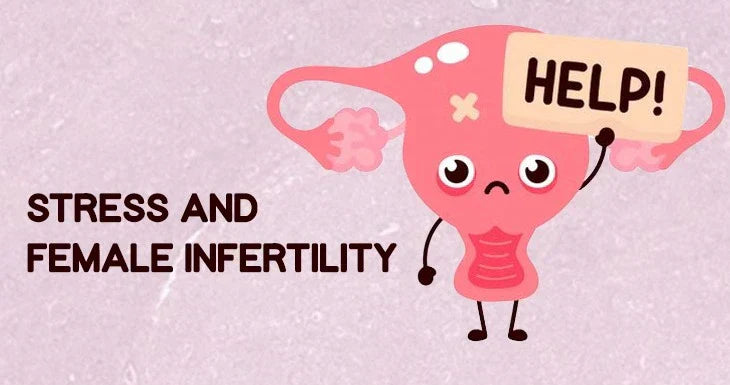

Does Stress Impact Your Fertility?
Short answer: yes.
Long answer: it’s complex, and nuanced, as most things are in the fertility realm.
In the mainstream western medicine world, often the messaging given to women and couples is that stress doesn’t have a huge impact on fertility, and if you’re living in a state of chronic stress, it’s not likely contributing to any significant fertility challenges.
We of course all know couples where one or both partners are living in chronic high or low grade stress and didn’t appear to have difficulties conceiving. We’re not talking about a one off stressful incident, we’re talking about chronic, ongoing, daily, low or high grade stress.
However, if you are living in a stressful environment or lifestyle and are having challenges falling pregnant and growing your family, only good things will happen from addressing your (and your partner’s) stress levels.
At the basic biological level, an increase in stress whether it be mental, physical, emotional or chemical etc activates the sympathetic nervous system. This branch of the nervous system is about survival. Blood, energy and nutrients are diverted away from our reproductive system in this state as they are seen as non essential in survival situations.
This is a wonderful and intelligent feature of the human body. We want it to do this. However, our nervous systems are primed for short, fast stressors that end, this we can handle. Chronic, ongoing, daily stress with no clear end in sight is not what the nervous system expects or how it was adapted to function.
Chronic stress can alter the microbiome, churn through nutrient reserves, change the way hormones are metabolised, affect thyroid function, change the immune system (increasing likelihood of autoimmunity), decreases sex hormone production (think progesterone, testosterone and oestrogen), delay ovulation, affect embryo implantation as well as egg and sleep DNA quality. Not to mention the undesirable outcomes for babies whose mothers are experiencing chronic stress while pregnant.
As we can see, none of these things are helpful for fertility. Will this happen to everyone? Luckily, no! Although do we really want to take the gamble when on the path to pregnancy and a healthy baby?
Decreasing chronic stress sends a clear message to your nervous system that you’re safe, all is well, and that no external threats are going to jeopardise a future pregnancy and baby. Low stress communicates the message to your body that this is a wonderful time for pregnancy and welcoming a child, that resources are not scarce.
An effective way of gaining a tangible insight into your stress levels is tracking HRV (heart rate variability). This marker shows the variation in time between heart beats. More variance is a good thing and shows better health and wellbeing. Less HRV can indicate the nervous system is under a deal of stress and can have the potential to impact fertility.
A study in 2018 showed women undergoing IVF who had low HRV had lower chances of pregnancy.
Here at Kyri Cycles we are so excited for HRV to be included as a feature in the BBRing to put more data and information in women’s hands and help you understand your body and fertility better.
https://journals.plos.org/plosone/article?id=10.1371/journal.pone.0193899
Author
Lauren Curtain
Lauren Curtain is a registered Chinese medicine practitioner, women's health focused acupuncturist and herbalist. She centres her practice around supporting women to navigate their hormones, menstrual cycles and fertility using a combination of education (all the women’s health info you didn't get in high school), acupuncture, herbal medicine, nutrition and lifestyle support. Lauren believes every woman has the right to know how her body works, and what she can do to optimise not only her reproductive health, but whole body health. Lauren has seen firsthand with her patients the dramatic improvements that can be made to reproductive health through simple, inexpensive, non-invasive techniques and firmly believes symptomatic periods and menstrual cycles can be a thing of the past and we can embody a thriving fertile life.
